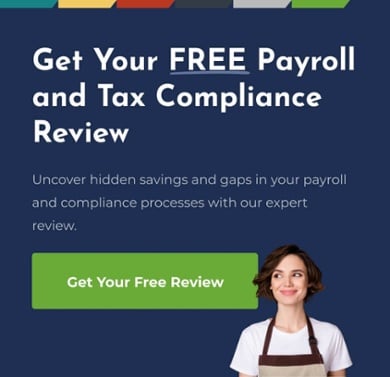What is A Payroll Card? 7 Things You Need to Know

Payroll is notoriously challenging to manage.
For businesses with diverse workforces, payroll can be a burden regardless of whether payments are made by paper checks, cash, or direct deposit. Payroll cards, on the other hand, are convenient, secure, and efficient alternatives that can reduce payroll processing costs and streamline processes.
You may wonder whether payroll cards are the right solution for your small business. To make an informed decision, you must understand how this innovative payroll option works.
This article provides you with a comprehensive understanding of payroll cards, their benefits and drawbacks, and whether they would be a suitable solution for your business.
Answered: What is A Payroll Card?
A payroll card is just one way to provide a hassle-free payroll experience for you, the employer, and your employees. It’s a reloadable prepaid card you issue to your employees to pay their wages.
Paper checks are cumbersome; even direct deposits require managing bank accounts and personal data. With a payroll card, you can just load your employees’ wages directly onto the card. Employees then use their cards just like debit cards – they can withdraw cash, make purchases, or even pay bills online.
A word of warning: Payroll cards are just one option you should offer to employees. Only some employees will be comfortable with this method. Respect employee preferences by providing multiple ways for employees to get paid, but also make sure it doesn’t become a burden for you to manage.
Related Read: Choosing a Payroll Schedule: 4 Things You Need to Consider
There might be a general resistance to payroll cards. Like any new technology, at first, people are wary. Some companies are hesitant to offer payroll cards, whether it be fear of change, a reluctance to adopt new methods, or regulatory concerns.
However, with a trend toward convenience in all areas of life (thank you, Amazon Prime!), payroll cards will continue to grow in popularity. As financial technology advances and payroll card providers continually improve the user experience, payroll cards are an attractive option for employees and businesses.
What are the Benefits of Payroll Cards for Employers?
As a small business owner, you’re juggling multiple plates. If you can save time on something, or at least make it more efficient, it’s always a big help. Payroll cards can do that for your business.
First, you can cut down on payroll processing costs. Say goodbye to printing and mailing paper checks and the fees of managing multiple direct deposit accounts. You'll also streamline the entire payroll process. You won’t need to chase employees to update their banking information – you just load the funds onto their cards.
Finally, going green isn’t just a trend. With direct deposit, you already make payroll a paperless process. Payroll cards provide the same benefits. Environmentally conscious employees will appreciate your commitment to sustainability.
What are the Benefits of Payroll Cards for Employees?
Employees want to be paid correctly, and on time. That’s the most important thing. How they’re paid is mainly personal preference and specific circumstances.
Payroll cards are convenient, especially for unbanked or underbanked employees. Payroll cards could be a game changer if your employees don’t have a bank account or struggle to access traditional banking services.
Employees get instant access to their funds. They won’t need to wait for a check to clear, and they can easily shop, pay bills, and withdraw cash – no more late payments and worrying about paying bills on time.
Lastly, there’s a shift from spending cash toward mobile payments. If you have a young workforce, they’ll more than likely want to use digital payment methods over cash. Many payroll cards come with mobile wallet compatibility – meaning you can use your mobile to pay for things, better track spending, and keep money secure.
Are There Potential Drawbacks of Payroll Cards?
Despite the many advantages of payroll cards for both you and your employees, there are some drawbacks.
Payroll cards may come with fees.
Employees may be charged for ATM withdrawals, account inactivity, and even balance inquiries. Help employees understand the costs associated with payroll cards by encouraging them to read the fine print carefully. These fees might not be deal-breakers, but they're definitely something to keep in mind.
Accessing and managing your money with payroll cards may come with some limitations. Using a payroll card might be affected by network restrictions, or certain ATMs may charge higher withdrawal fees. Funds may also be temporarily unavailable due to maintenance or system updates. Even though these limitations might not be major concerns, they're worth considering when weighing the pros and cons.
Finally, let's talk privacy and data security.
The security of your financial and personal information is crucial when purchasing any financial product. In spite of the robust security measures employed by most payroll card providers, there's always a risk of data breaches. Ensure that your payroll card provider's security policies and practices are adequate so you feel comfortable entrusting sensitive data to them.
Are There Regulatory Considerations to Consider?
Both you and your employees should be aware of regulatory requirements. Federal and state regulations play a role in governing payroll card use. Regulations often focus on obtaining employee consent for using a payroll card and providing clear fee disclosures. Be aware that different states have different rules.
For employers, compliance with payroll card regulations is crucial.
The last thing you need is fines, penalties, or legal trouble. Look out for changes and create a fair, transparent system for your employees. Staying on top of regulations can be difficult – it’s easy to miss something – but payroll companies can provide expertise and give you peace of mind by making sure you don’t miss updates.
Payroll cards are legal as long as they’re used in compliance with federal and state regulations. Like any other form of payment, employees' money is subject to income taxes. You’re responsible for withholding the appropriate taxes from employees' pay and reporting this information to the relevant tax authorities.
Who are Payroll Cards Best For?
Paycards won’t suit every situation, and some employees will prefer other methods of payment. Still, they’re a great solution for various employees.
- Unbanked or underbanked employees: Employees who do not have a traditional bank account or have limited access to banking services can benefit from payroll cards. Their wages are secure and easy to manage this way.
- Employees without direct deposit: If employees aren't set up for direct deposit, payroll cards can provide them with quicker access to their money than paper checks.
- Employers with a diverse workforce: Companies with diverse workforces can benefit from payroll cards because they cater to various financial needs. Payroll cards can help make payroll more efficient and inclusive for everyone.
- Gen Z employees: Due to their passion for sustainability, gig economy working, and tech-savvy nature, Gen Z employees are more likely to embrace payroll cards. A paperless approach, mobile payments, and digital financial management appeal to them.
Specific industries can benefit from paycards, too.
- Retail and Hospitality: Employees in these sectors tend to have varying schedules and work part-time, seasonal, or temporary jobs. Payroll cards are flexible and efficient enough to accommodate these diverse working arrangements.
- Construction: Construction companies often employ a mix of full-time, part-time, and contract-based workers who are involved in different projects across different locations. Payroll cards help streamline payroll and organize payroll processes.
- Manufacturing and Warehousing: With large workforces and high employee turnover, payroll cards can simplify payroll management by reducing the need for paper checks and making it easier to onboard new employees.
Other Ways to Streamline Payroll
For large businesses and businesses with a mix of part-time, full-time, and contracted workers, payroll cards offer a way to relieve the administrative burden of managing payroll. But there are other ways for small businesses to manage their payroll.
With a digital payroll system, you can save time, reduce errors, and manage employee data more easily. Designed for small businesses, ConnectPay simplifies payroll processing, automates tax calculations, and keeps you compliant with state, federal, and local regulations.
Other ways we can help:
- Expert payroll services that handle everything from tax filings to direct deposits, allowing you to focus on growing your business.
- Automatic updates keep you informed about new regulations and compliance requirements, so you can easily make necessary adjustments.
- Resources and support to educate your employees on best practices and the latest payroll technologies.
- Simplified reporting, intuitive time and attendance, Workers’ Comp, and more!
What is a Payroll Card? The Modern Way to Pay
Payroll cards are part of a modern future. They offer a way for specific sectors and workforces to manage payroll. But they’re not for everyone. Beyond payroll cards, what else can you do to ensure you’re on top of everything that payroll touches?
From taxes to workers’ comp, you’ve got a lot to think about. And while a big-box payroll provider can help, as a small business, you really need a partner. When you choose to work with ConnectPay, you’ll get:
- An expert-guided business review to identify gaps and opportunities in your payroll process.
- Tailored connections and optimizations so your business operations flow seamlessly
- 7-day premium onboarding with Connected Rep guidance and support
Schedule a free consultation and see how we can help you run your business like a well-oiled machine.



